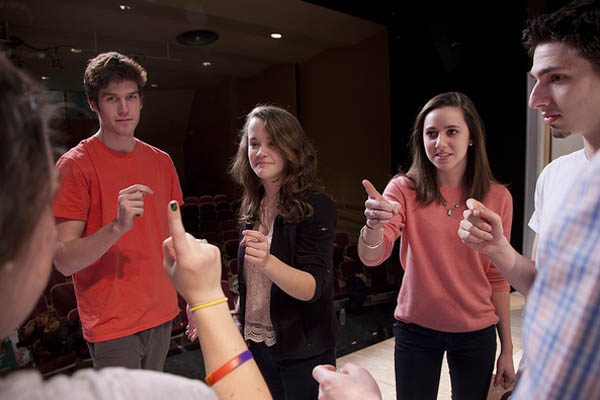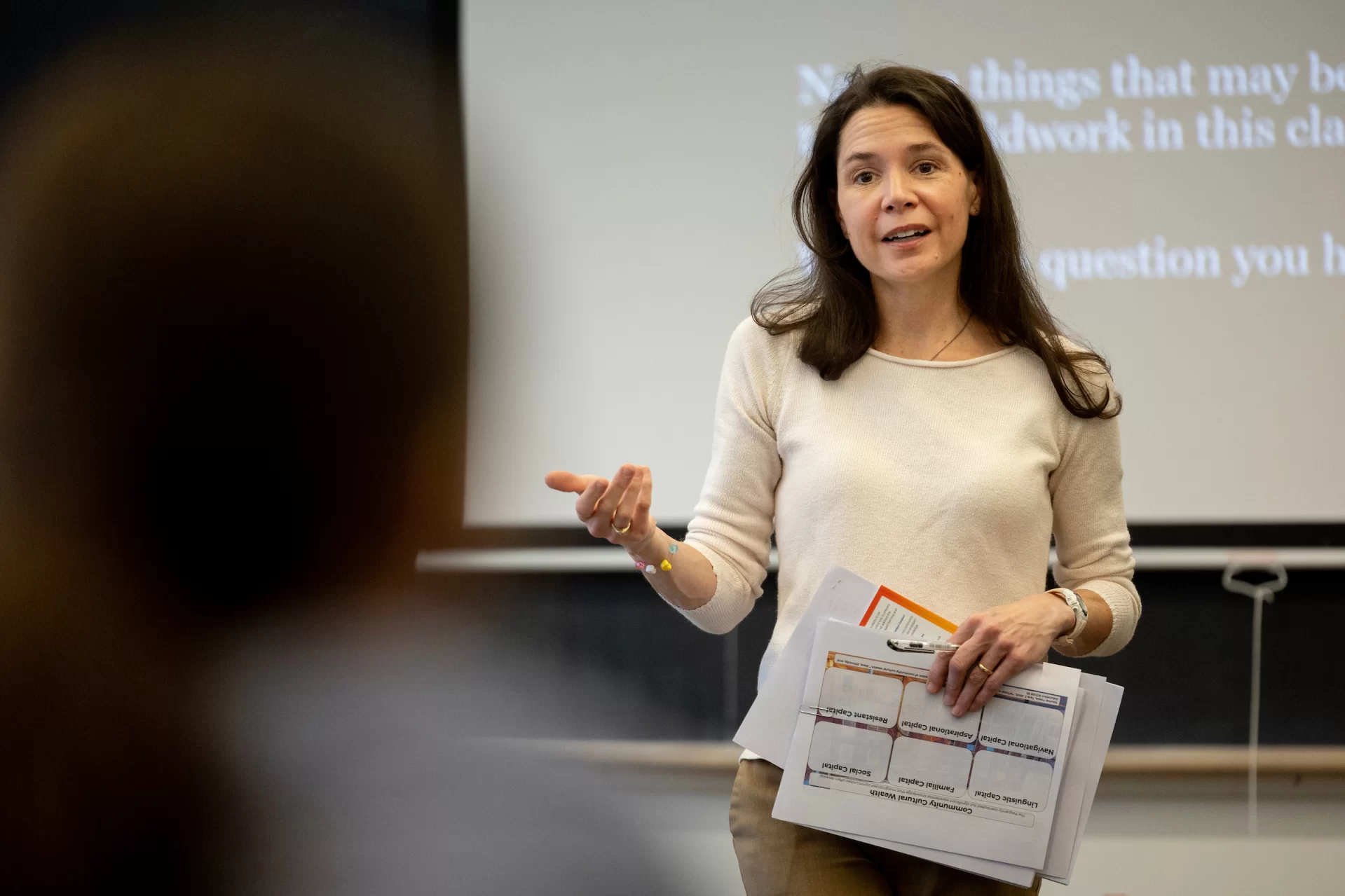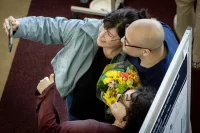
Castellano ’12 directs Ibsen’s still-controversial ‘A Doll’s House’

Right to left: Daniel Waters ’12, director Elizabeth Castellano ’12, Hanna Allerton ’15, Charles McKitrick ’14 and Caitlyn Defiore ’12 (back to camera) rehearse for “A Doll’s House.”
With an ending that has shocked audiences for more than a century and still sparks debate about a woman’s role in family and society, Henrik Ibsen’s 19th-century play A Doll’s House is the winter mainstage theater production at Bates.
Elizabeth Castellano ’12 of New Suffolk, N.Y., directs A Doll’s House as part of her honors thesis in theater. Performances take place 7:30 p.m. Thursday through Saturday, March 8-10, and Monday, March 12; and 2 p.m. Saturday and Sunday, March 10 and 11, in Schaeffer Theatre, 305 College St.
Admission is $6 for the general public and $3 for seniors and non-Bates students. Tickets are available at www.batestickets.com. For more information, please call 207-786-8294.
Set in Norway in the 1870s, Ibsen’s play sent jaws dropping throughout Europe with its bold presentation of a wife’s rebellion against her oppressive husband and society as Nora Helmer, the play’s “doll,” is forced to decide between family and self. The play has been produced around the globe, and was released as a well-received 1973 film starring Anthony Hopkins and Claire Bloom.
Castellano adapts Ibsen’s story to World War I-era New York City, where the pressures and promises of city life and the women’s suffrage movement amplify for today’s audience the impact of Nora’s rebellion.
“The ‘city’ offers hope for a different life.” Castellano says. “It represents nontraditional thinking, a place to fit in even if you don’t fit in.”
Along with the city’s timeless promise of freedom, opportunity and social mobility, the setting reflects other aspects of American life that modern audiences will find relatable. As Castellano says, “The roles of men and women in society transcend time and are relevant to our lives in the 21st century.”
Castellano has an eye for plays that depict controversial relationships between men and women. Last spring she directed David Mamet’s Oleanna, a provocative drama about a female student’s relationship with her male professor.
“I don’t think it’s as important to have questions answered in theater,” Castellano says, “as it to ask questions, and with any luck, spark debate.”
A theater major, Castellano is one of the rare students to direct a mainstage play, a task typically undertaken by a member of the faculty. (The last time a student directed a mainstage production was 2008.) To complete her honors thesis in theater, she will also write an extensive scholarly essay examining A Doll’s House through historical and theoretical research.
With an elaborate set and costumes reflecting the period, A Doll’s House is an exciting production for the Bates community. The cast represents a variety of class years, including first-year Hannah Allerton of Brooklyn, N.Y., as Nora Helmer.
“My hope is that all of us involved in this production of A Doll’s House come away with a little more insight into human behavior, with a greater love of theater and with memories of good times,” Castellano says.
— by Erica Long ’12




